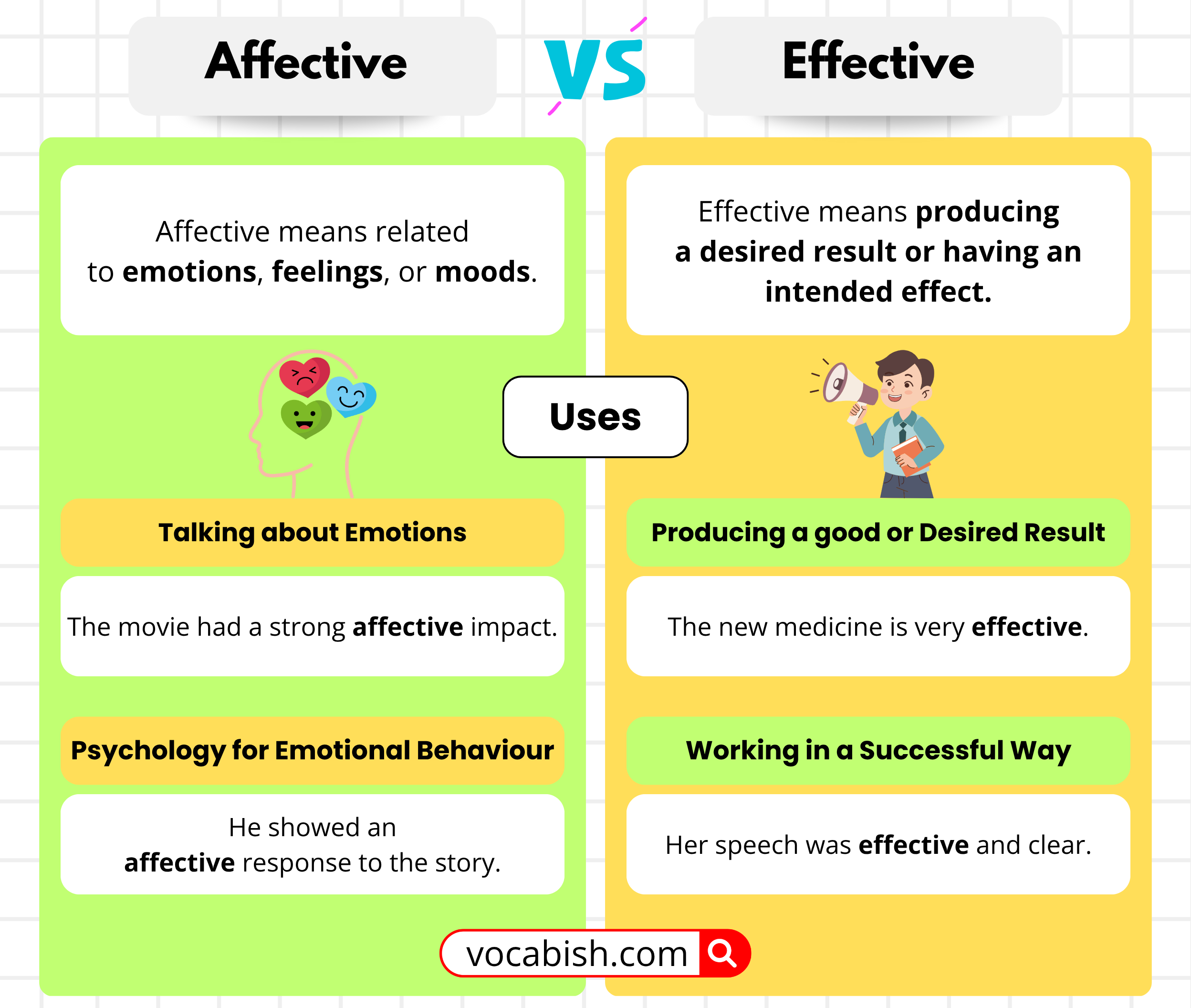In this blog post, you will learn the difference between Affective and Effective, two English words that look and sound similar but have different meanings. Understanding their correct use will help you improve your vocabulary and communicate more clearly in both writing and speech.
You can explore our 100 confusing words list to expand your vocabulary skills!
Meanings of Affective and Effective
Affective
Affective means related to emotions, feelings, or moods. It is often used in psychology, education, and emotional studies to describe things that involve emotional responses.
Example: The teacher focused on students’ affective development by encouraging empathy and kindness.
Effective
Effective means producing a desired result or having an intended effect. It describes something that works well or achieves its goal.
Example: The new plan was effective in increasing sales.
Differences Between Affective and Effective
| Point | Affective | Effective |
|---|---|---|
| Meaning | Related to emotions or feelings | Producing a result or having an effect |
| Usage | Common in psychology or emotional contexts | Used in general situations like work, education, or performance |
| Part of Speech | Adjective | Adjective |
| Example | The study examined students’ affective attitudes. | The new policy was effective immediately. |
Usage of Affective
Affective is used when talking about emotions, attitudes, or feelings. It’s not common in daily conversation but is often used in academic or formal writing.
Examples:
- The therapist studied the affective behavior of patients.
- Emotional intelligence is part of affective learning.
- Teachers should focus on both cognitive and affective skills.
- The movie created a strong affective response among viewers.
- Music often influences our affective state.
Usage of Effective
Effective is used when something produces results or achieves its purpose. It is common in both formal and informal English.
Examples:
- This method is very effective for learning English.
- The medicine is effective against the infection.
- A good leader uses effective communication.
- The new strategy proved to be effective.
- Regular exercise is an effective way to stay healthy.
Formal and Informal Uses of Affective and Effective
| Type | Affective | Effective |
|---|---|---|
| Formal | The research focused on students’ affective responses. | The new law became effective last month. |
| Informal | She was in an affective mood after the movie. | The spray is very effective at killing insects. |
Summary of Effective vs Affective
- Affective → related to emotions or feelings.
- Effective → related to results or success.
Use affective in emotional or academic contexts.
Use effective when describing performance, work, or results.
FAQs on Effective and Affective
What is the main difference between Affective and Effective?
Affective refers to emotions or feelings, while Effective means something that produces results.
Is Affective commonly used in daily English?
No, Affective is mostly used in psychology or education, not in casual speech.
Which word should I use when describing results or success?
Use Effective to describe results or achievements.
Can both words be used as adjectives?
Yes, both Affective and Effective are adjectives, but they describe different things.
Is Affective ever used in place of Effective?
No. Though they sound similar, their meanings are different and should not be confused.
Read More

